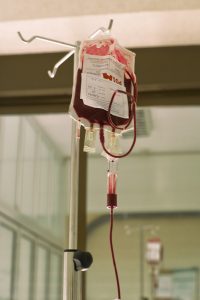Last updated on August 29th, 2017 at 09:55 am
 People living with diagnosed HIV in the UK can expect a near-normal life expectancy when diagnosed as early as possible. However, that was not always the case.
People living with diagnosed HIV in the UK can expect a near-normal life expectancy when diagnosed as early as possible. However, that was not always the case.
In November 2016 a motion in the House of Commons was passed stating:
“That this House recognises that the contaminated blood scandal was one of the biggest treatment disasters in the history of the NHS, which devastated thousands of lives.”
Thousands of people were infected with hepatitis C and HIV through NHS blood products in the 1970s and 80s.
In 2015, a Scottish inquiry to investigate how the NHS collected, treated and supplied blood was carried out.
Former High Court judge Lord Penrose, identified that:
- More should have been done to screen blood and donors for hepatitis C in the early 1990s.
- The collection of blood from prisoners should have stopped sooner.
- Patients were not adequately informed of the risks [of receiving blood products].
Crucially, the Scottish inquiry concluded that very little could have been done differently that would have prevented the transmission of HIV.
Then Prime Minister, David Cameron, apologised to the victims on behalf of the British government but there was to be no compensation, although discretionary payments were made by the government.
New evidence has now come to light that appears to show the Department of Health was aware of the high risk to patients in 1980 and that they chose to continue with the treatment plan for another 6 years.
If that is the case, then it is right that someone be made accountable for the actions taken and comprehensive compensation package be put in place.
